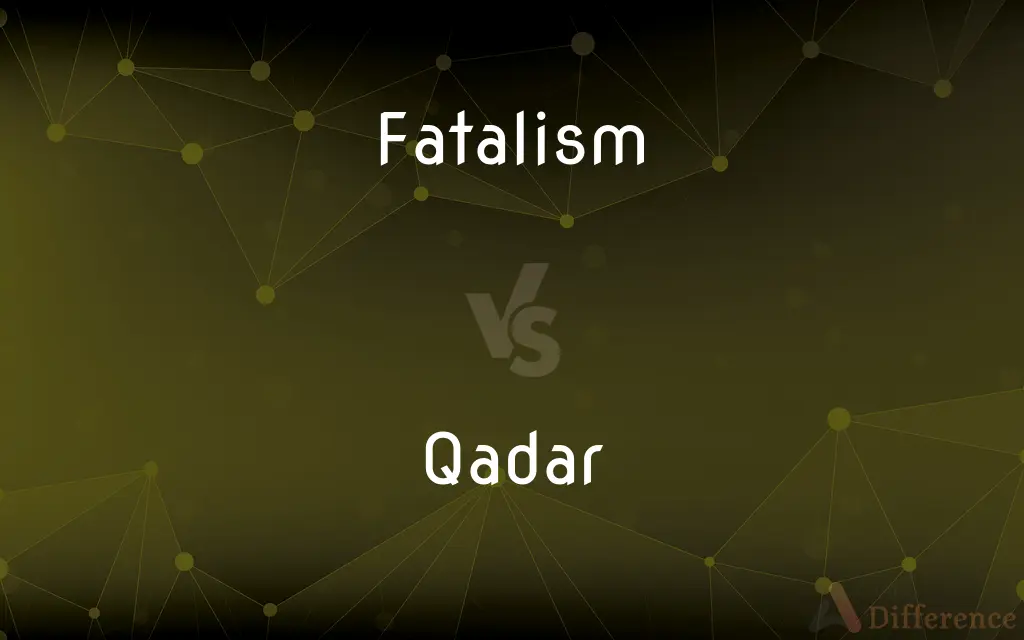Fatalism vs. Qadar — What's the Difference?

Difference Between Fatalism and Qadar
ADVERTISEMENT
Compare with Definitions
Fatalism
Fatalism is a family of related philosophical doctrines that stress the subjugation of all events or actions to fate or destiny, and is commonly associated with the consequent attitude of resignation in the face of future events which are thought to be inevitable.
Qadar
(Islam) Divine intervention in the affairs of humans; fate, predestination.
Fatalism
The doctrine that all events are predetermined by fate and are therefore unalterable.
Fatalism
Acceptance of the belief that all events are predetermined and inevitable.
Fatalism
The doctrine that all events are subject to fate or inevitable necessity, or determined in advance in such a way that human beings cannot alter them.
ADVERTISEMENT
Fatalism
The doctrine that all things are subject to fate, or that they take place by inevitable necessity.
Fatalism
A philosophical doctrine holding that all events are predetermined in advance for all time and human beings are powerless to change them
Share Your Discovery

Previous Comparison
Duvet vs. Quilt
Next Comparison
Actor vs. Performer














































